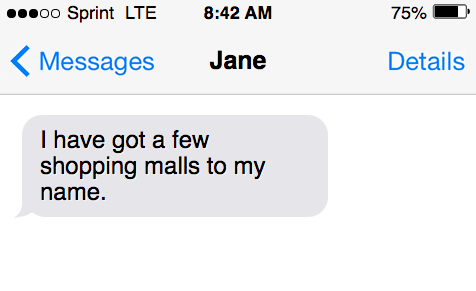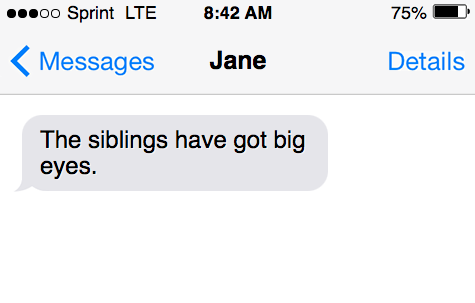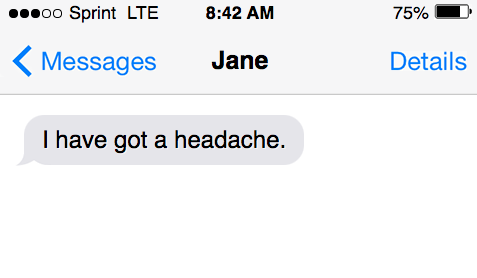The verb “get” is the most common verb used in the English language. Interestingly, this irregular verb’s past participle is different in North America and English-speaking countries outside North America. In American English, the past participle of “get” is “gotten.” On the other hand, in British English, the past participle of “get” is “got”.
American and Canadian speakers often use the past participle “gotten” in writing when conversing. Here is a detailed explanation of both “got” and “gotten” with examples.
What Does “Got” Mean?
The verb “got” is the simple past and past participle of the verb “get.” It is commonly used in British English. There are different meanings for the verb – “got.” Here are a few:
- It means to receive something. For example: She got a letter from the US Embassy yesterday.
- It means to suffer or experience something. For example: He got rashes on his body from the body lotion.
- It means to reach a particular state or condition. For example: She got thinner.
- It means to move to a place. For example: He got on a bus to go to London.
- It also means to catch somebody. For example: The police got hold of the prime suspect.
“Got” is also used in constructing passive structures but in an informal style and not used for long-planned action. For example: He got caught by the police because of his reckless driving.
| Word | Definition |
| Got (past tense for get) | come to have or hold (something); receive. |
| Gotten (verb) /ˈɡätn/ | North American past participle of get. |
What Does “Gotten” Mean?
The verb “gotten” is the past participle of the verb “get,” which is commonly used in American English. In North America, this word has been used for many centuries. In countries like America and Canada, the word is used when something is acquired. For example: He has gotten a fine for violating the traffic signals. In addition to this, it is used when inheriting something. For example: She has gotten property from her grandfather.
Remember, the word “gotten” isn’t used in British English.
Understanding “Have Got + Noun Phrase”
The “have got” verb discusses possession, relationships, physical features, and problems. When talking about these, the continuous tense is not used. “Have got + noun phrase” is primarily used in British English compared to American English. Here are a few examples of “have got + noun phrase.”
Examples:
Possession
- I have got four cats with me. (have got + noun phrase (four cats)). This sentence reflects ownership. Here the person talks about owning four cats.
- I have got a few shopping malls to my name. (have got + noun phrase (a few shopping malls)).

Relationships
- I have got two brothers. (have got + noun phrase (two brothers)).
- They have got many cousins. (have got + noun phrase (many cousins)).
Physical Features
- The siblings have got big eyes. (have got + noun phrase (big eyes)).
- The brothers have got long hair. (have got + noun phrase (long hair)).

Problems
- I am taking medicine because I have got a high fever. (have got + noun phrase (a high fever)).
- I have got a headache. (have got + noun phrase ( a headache)).

Understanding “Have Got To + Verb Phrase”
The “have got to” is used when talking of something that has to be done. In other words, it is used when something is obligatory. This is used in both British English and American English. Here are a few examples of “have got to + verb phrase”.
Examples:
- I have got to get up early this weekend. Here “getting up early this weekend” is obligatory.
- I have got to meet my friend tomorrow. Here “meeting the friend tomorrow” is obligatory.
“Have got to” is also used to tell something true. This is primarily used in American English. For example: I don’t like this. You have got to change your shirt, my friend. Here, the example shows that the person is being frank regarding the shirt and pointing this out to his/her friend.
With the “have got to,” questions and negative statements can also get constructed.
Examples:
- I haven’t got to see my newborn nephew yet.
- Have you got to be dressed as Spiderman whenever there is Cosplay?
When to Use “Got”
The verb “got” is primarily used in the simple past tense, unlike “get,” which is used in the present tense.
Examples
Here are some situations in which the verb “got” is used.
- He got married last year.
- She got a salary raise last month.
- She got paint on her face when painting the room.
- I got transferred from London to Edinburgh on promotion.
- She got used to traveling in a crowded bus to the office.
- He got an employee of the month award last year.
- The dog got hurt when it tried to jump over the wall.
- The brother got the house registered in his name.
- She got tired of answering the same questions again and again in the press conference yesterday.
When to Use “Gotten”
The conjugate form of “get” is “gotten” and is used primarily in American English. The verb “gotten” is used when something is obtained and in situations where something has been completed. While creating sentences with “gotten,” words like “has/have/had” are used.
Examples
- He has gotten his shirts out of the closet.
- She has gotten a PlayStation from her dad.
- I have gotten a flower vase from a friend on my birthday.
- I have gotten my house painted.
- She had gotten her exam results even before they were officially out.
- Julie has gotten upset with me. I will never bring up this matter in front of her again.
- He has gotten all his manners from his mother.
How to Remember Which Form to Use
The easy trick to remember is that if writing in British English, only the “got” verb is used. On the other hand, in American English, both are used, but the usage depends on the context, which is:
- The “gotten” verb is used if something is acquired or received.
- If something must be done or owns something, use the “got” verb.
FANBOYS Tricks
FANBOYS or coordinating conjunctions are used to join two simple independent sentences. There are seven coordinating conjunctions which are:
- For
- And
- Nor
- But
- Or
- Yet
- So
Examples:
- I have got a car, but I don’t know how to drive it.
- Have you got enough money on you, or should I withdraw from the ATM?
- I have got a bag of chocolates, so I don’t want to buy any more.
- She has gotten enough groceries in the house, yet she has purchased more.
- I haven’t gotten a credit card, nor do I have a debit card now.
- She has gotten both her manicure and pedicure done.
- The money I have gotten is not enough, for I have spent most of it.
Common questions
Questions about the English language.
Is “gotten” a word?
Yes, “gotten” is a word in North America. It is the past participle of the verb base form “got.”
What is the past participle of the word “get?”
“Got” is the past participle of the word “get.”
Is “had gotten” correct grammar?
Yes, “had gotten” can get used in American English. For example, “I had gotten a speeding ticket last year.”
What is a better word for “gotten?”
Words like, “located” or “obtained” are better words to use than “gotten.”
Sources
- Got Definition & Meaning | Dictionary.com
- Gotten definition and meaning | Collins English Dictionary
- Got vs Gotten – A Quick Guide
- Have got and have – English Grammar Today
- Have to and have got to
- Gotten – WordReference.com English Usage
- Got vs Gotten – What’s the Difference? – Writing Explained
Inside this article
Fact checked:
Content is rigorously reviewed by a team of qualified and experienced fact checkers. Fact checkers review articles for factual accuracy, relevance, and timeliness. Learn more.
Core lessons
Glossary
- Abstract Noun
- Accusative Case
- Anecdote
- Antonym
- Active Sentence
- Adverb
- Adjective
- Allegory
- Alliteration
- Adjective Clause
- Adjective Phrase
- Ampersand
- Anastrophe
- Adverbial Clause
- Appositive Phrase
- Clause
- Compound Adjective
- Complex Sentence
- Compound Words
- Compound Predicate
- Common Noun
- Comparative Adjective
- Comparative and Superlative
- Compound Noun
- Compound Subject
- Compound Sentence
- Copular Verb
- Collective Noun
- Colloquialism
- Conciseness
- Consonance
- Conditional
- Concrete Noun
- Conjunction
- Conjugation
- Conditional Sentence
- Comma Splice
- Correlative Conjunction
- Coordinating Conjunction
- Coordinate Adjective
- Cumulative Adjective
- Dative Case
- Determiner
- Declarative Sentence
- Declarative Statement
- Direct Object Pronoun
- Direct Object
- Diction
- Diphthong
- Dangling Modifier
- Demonstrative Pronoun
- Demonstrative Adjective
- Direct Characterization
- Definite Article
- Doublespeak
- False Dilemma Fallacy
- Future Perfect Progressive
- Future Simple
- Future Perfect Continuous
- Future Perfect
- First Conditional
- Irregular Adjective
- Irregular Verb
- Imperative Sentence
- Indefinite Article
- Intransitive Verb
- Introductory Phrase
- Indefinite Pronoun
- Indirect Characterization
- Interrogative Sentence
- Intensive Pronoun
- Inanimate Object
- Indefinite Tense
- Infinitive Phrase
- Interjection
- Intensifier
- Infinitive
- Indicative Mood
- Participle
- Parallelism
- Prepositional Phrase
- Past Simple Tense
- Past Continuous Tense
- Past Perfect Tense
- Past Progressive Tense
- Present Simple Tense
- Present Perfect Tense
- Personal Pronoun
- Personification
- Persuasive Writing
- Parallel Structure
- Phrasal Verb
- Predicate Adjective
- Predicate Nominative
- Phonetic Language
- Plural Noun
- Punctuation
- Punctuation Marks
- Preposition
- Preposition of Place
- Parts of Speech
- Possessive Adjective
- Possessive Determiner
- Possessive Case
- Possessive Noun
- Proper Adjective
- Proper Noun
- Present Participle
- Prefix
- Predicate



